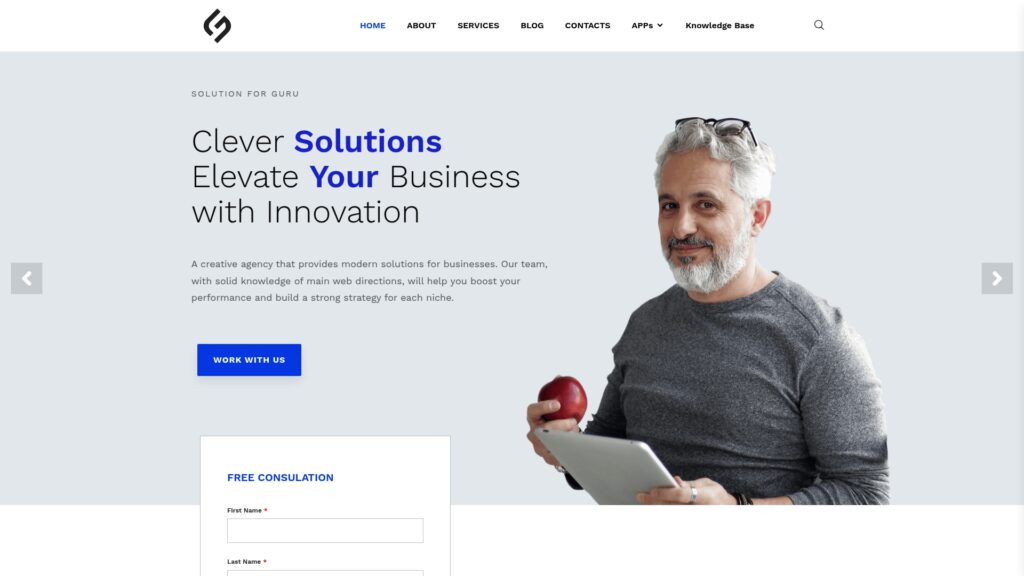How Can CRM Transform Your Multi-Channel Marketing Campaigns?

In today’s digital landscape, customers interact with brands across numerous touchpoints—from social media and email to websites and physical stores. Consequently, businesses face the challenge of delivering consistent, personalized experiences across all these channels. Customer Relationship Management (CRM) systems have emerged as powerful tools that enable organizations to orchestrate sophisticated multi-channel marketing campaigns while maintaining a unified view of customer interactions. This comprehensive guide explores how CRM platforms empower businesses to create seamless, data-driven marketing strategies that resonate with modern consumers.
Table of Contents
- Quick Summary
- What Are Multi-Channel Marketing Campaigns?
- How Does Salesforce CRM Enable Multi-Channel Marketing Success?
- Why Should Businesses Consider Pipedrive CRM for Multi-Channel Campaigns?
- What Makes Bigin by Zoho CRM Ideal for Small Business Multi-Channel Marketing?
- How Can Zoho CRM Power Your Multi-Channel Marketing Strategy?
- What Role Does Creatio CRM Play in Multi-Channel Campaign Management?
- How Do CRM Systems Centralize Customer Data Across Channels?
- Why Is Personalization Critical in Multi-Channel Marketing?
- How Can CRM Analytics Optimize Multi-Channel Campaign Performance?
- What Automation Capabilities Do CRMs Offer for Multi-Channel Campaigns?
- How Does CRM Integration Enhance Multi-Channel Marketing Effectiveness?
- Summing up
- Frequently Asked Questions
- Benefits of Cooperation with Solution for Guru Company
Quick Summary
Multi-channel marketing campaigns require sophisticated orchestration across various customer touchpoints, and CRM systems provide the foundation for this strategic approach. This article examines how leading CRM platforms—including Salesforce CRM, Pipedrive CRM, Bigin by Zoho CRM, Zoho CRM, and Creatio CRM—empower businesses to create cohesive, data-driven marketing experiences. Furthermore, we explore essential CRM capabilities such as customer data centralization, personalization engines, analytics tools, automation workflows, and integration ecosystems. By leveraging these powerful features, organizations can deliver consistent messaging, track customer journeys across channels, and optimize campaign performance based on real-time insights. Ultimately, the right CRM implementation transforms fragmented marketing efforts into synchronized strategies that drive engagement, conversions, and long-term customer loyalty.
What Are Multi-Channel Marketing Campaigns?
Multi-channel marketing campaigns represent a strategic approach where businesses engage customers through multiple platforms and touchpoints simultaneously. Unlike single-channel marketing, this methodology recognizes that modern consumers interact with brands across various mediums—including email, social media, websites, mobile applications, physical stores, and customer service channels. Moreover, these campaigns aim to create a cohesive brand experience regardless of where or how customers choose to engage.
The fundamental principle behind multi-channel marketing involves meeting customers where they already spend their time. For instance, a customer might first discover a product through a social media advertisement, then visit the company website for more information, receive a follow-up email with a special offer, and ultimately make a purchase through a mobile app. Throughout this journey, each touchpoint should feel connected and informed by previous interactions.
Effective multi-channel campaigns require careful coordination and consistent messaging across all platforms. Additionally, they demand a deep understanding of customer preferences, behaviors, and channel usage patterns. This is precisely where CRM systems become invaluable—they provide the technological infrastructure needed to manage complex customer data, segment audiences intelligently, and deliver personalized content across multiple channels simultaneously.
The benefits of multi-channel marketing are substantial. Research consistently shows that customers who engage with brands across multiple channels demonstrate higher lifetime value and increased loyalty compared to single-channel customers. Furthermore, multi-channel strategies allow businesses to reinforce their messaging through repetition across different mediums, increasing brand recall and recognition. However, executing these campaigns successfully requires robust systems that can track customer interactions, maintain data integrity, and coordinate marketing activities across various platforms.
How Does Salesforce CRM Enable Multi-Channel Marketing Success?

Salesforce CRM stands as one of the most comprehensive platforms for orchestrating multi-channel marketing campaigns, offering an extensive suite of tools designed specifically for modern marketing challenges. At its core, Salesforce Marketing Cloud provides marketers with powerful capabilities to create, manage, and optimize campaigns across email, mobile, social media, advertising, and web channels from a single unified platform.
One of Salesforce CRM’s most significant advantages lies in its Journey Builder feature, which allows marketers to design complex, multi-touch customer journeys that span multiple channels. Consequently, businesses can create sophisticated automation workflows that trigger specific actions based on customer behaviors, preferences, and lifecycle stages. For example, when a customer abandons a shopping cart, Salesforce can automatically initiate a coordinated response that includes a reminder email, a retargeting advertisement on social media, and a personalized push notification—all working together seamlessly.
Moreover, Salesforce CRM excels in data management and customer profiling. The platform’s Customer 360 approach creates a unified view of each customer by consolidating data from various sources, including website interactions, purchase history, customer service inquiries, and social media engagement. This holistic perspective enables marketers to segment audiences with remarkable precision and deliver highly personalized content that resonates with specific customer needs and preferences.
Integration capabilities further enhance Salesforce CRM’s value in multi-channel marketing. The platform connects seamlessly with thousands of third-party applications through its AppExchange marketplace, enabling businesses to extend their marketing technology stack while maintaining centralized data management. Whether connecting with advertising platforms, content management systems, or analytics tools, Salesforce ensures that all marketing activities remain coordinated and data-driven.
Why Should Businesses Consider Pipedrive CRM for Multi-Channel Campaigns?

Pipedrive CRM offers a streamlined, sales-focused approach to multi-channel marketing that particularly benefits small to mid-sized businesses seeking simplicity without sacrificing functionality. While traditionally known for its powerful sales pipeline management, Pipedrive has evolved to include robust marketing features that support coordinated multi-channel campaigns, especially for organizations where sales and marketing teams work closely together.
The platform’s visual pipeline interface provides an intuitive way to track leads as they progress through various marketing touchpoints. This visual representation helps teams understand exactly where prospects are in their journey and which channels have proven most effective at moving them forward. Furthermore, Pipedrive’s lead scoring capabilities enable marketers to prioritize prospects based on their engagement across multiple channels, ensuring that sales teams focus their efforts on the most promising opportunities.
Pipedrive CRM’s email marketing functionality integrates directly with its pipeline management, allowing businesses to create targeted email campaigns based on specific deal stages, customer segments, or behavioral triggers. Additionally, the platform tracks email opens, clicks, and responses, automatically updating lead records with this engagement data. This seamless integration between marketing activities and sales processes ensures that no valuable insights are lost as leads transition from marketing to sales.
For businesses implementing multi-channel strategies, Pipedrive CRM’s integration ecosystem proves particularly valuable. The platform connects with numerous marketing tools, including email marketing services, social media platforms, and advertising networks. These integrations ensure that data flows smoothly between systems, maintaining a comprehensive view of customer interactions across all channels while keeping Pipedrive as the central hub for relationship management.
What Makes Bigin by Zoho CRM Ideal for Small Business Multi-Channel Marketing?

Bigin by Zoho CRM represents a purpose-built solution for small businesses and startups venturing into multi-channel marketing without the complexity or cost of enterprise-level platforms. Designed with simplicity as a core principle, Bigin provides essential CRM functionalities tailored specifically for teams that need to manage customer relationships across multiple channels while maintaining ease of use and affordability.
The platform’s pipeline-centric approach helps small businesses organize their multi-channel marketing efforts around customer journeys rather than overwhelming feature sets. Bigin allows users to create multiple pipelines for different products, services, or customer segments, making it straightforward to track how various marketing channels contribute to progression through these pipelines. This visual organization helps small teams quickly understand which channels drive results and where prospects might be getting stuck in their journey.
Email integration forms a cornerstone of Bigin’s multi-channel capabilities. The platform connects seamlessly with popular email services, allowing users to send, receive, and track emails directly within the CRM interface. Moreover, Bigin automatically associates email communications with relevant contact records, creating a comprehensive communication history that informs future marketing efforts. This integration ensures that even small teams without dedicated marketing automation platforms can maintain consistent email engagement as part of their multi-channel strategy.
Importantly, Bigin maintains seamless integration with the broader Zoho ecosystem, providing small businesses with a clear growth path. As organizations mature and their multi-channel marketing needs become more sophisticated, they can easily transition to Zoho CRM or incorporate additional Zoho applications for email marketing, social media management, or analytics without losing their existing data or requiring complete system overhauls.
How Can Zoho CRM Power Your Multi-Channel Marketing Strategy?

Zoho CRM delivers a comprehensive platform for businesses seeking to implement sophisticated multi-channel marketing campaigns while maintaining flexibility and cost-effectiveness. As a full-featured CRM solution, Zoho provides extensive capabilities for managing customer relationships across email, social media, live chat, phone, and other channels, all while offering exceptional value compared to many enterprise alternatives.
The platform’s Omnichannel approach ensures that customer interactions across various touchpoints are captured, organized, and made accessible throughout the organization. Zoho CRM’s unified interface displays all customer communications—whether they originated from email, social media messages, website chats, or phone calls—in a single timeline view. This consolidation enables marketing teams to understand the complete context of customer relationships and tailor their multi-channel strategies accordingly.
Social media integration represents a particular strength of Zoho CRM, with native connections to major platforms including Facebook, Twitter, and LinkedIn. The platform enables businesses to monitor brand mentions, engage with customers directly through social channels, and track how social interactions influence deal progression. Additionally, Zoho’s social listening features help marketers identify opportunities for engagement and understand sentiment across their social media presence.
Email marketing capabilities within Zoho CRM go beyond simple message sending to include sophisticated features like A/B testing, dynamic content personalization, and behavioral triggers. The platform tracks email engagement metrics and automatically updates lead scores based on recipient actions, ensuring that the most engaged prospects receive appropriate follow-up across other channels. Moreover, Zoho’s email analytics provide insights into which subject lines, content types, and sending times generate the best results.
Furthermore, Zoho CRM’s integration capabilities extend to the entire Zoho suite and numerous third-party applications. Whether connecting with Zoho Campaigns for advanced email marketing, Zoho Social for comprehensive social media management, or external advertising platforms, the CRM maintains centralized customer data while enabling specialized functionality across different marketing channels.
What Role Does Creatio CRM Play in Multi-Channel Campaign Management?

Creatio CRM distinguishes itself through its unique focus on business process management combined with comprehensive multi-channel marketing capabilities. The platform operates on a philosophy that successful marketing requires not just tools but also well-defined processes that coordinate activities across channels, teams, and customer touchpoints. This process-centric approach makes Creatio particularly valuable for organizations implementing complex, multi-stage marketing campaigns.
At the heart of Creatio’s multi-channel capabilities lies its Marketing Creatio product, which provides end-to-end campaign management functionality. The platform enables marketers to plan, execute, and analyze campaigns across email, events, social media, advertising, and other channels from a unified interface. Moreover, Creatio’s campaign planning tools help teams coordinate resources, set budgets, and establish timelines before launching multi-channel initiatives, ensuring that all elements work together harmoniously.
Creatio CRM’s process automation stands out as one of its most powerful features for multi-channel marketing. The platform’s visual process designer allows marketers to create sophisticated workflows that orchestrate customer interactions across multiple channels based on specific triggers and conditions. For example, a lead generation campaign might begin with social media advertising, transition to email nurturing sequences, include event invitations, and culminate in personalized sales outreach—all managed through automated processes that ensure consistent execution.
Lead management within Creatio takes a comprehensive approach that considers the multi-channel nature of modern customer journeys. The platform provides lead scoring mechanisms that weight interactions across different channels, helping businesses understand which combinations of touchpoints most effectively move prospects toward conversion. Additionally, Creatio tracks lead source attribution across channels, enabling marketers to understand the true ROI of their multi-channel investments.
CRM Platform Comparison for Multi-Channel Marketing
How Do CRM Systems Centralize Customer Data Across Channels?
Customer data centralization represents one of the most fundamental ways CRM systems enable effective multi-channel marketing campaigns. Without a unified view of customer information, businesses struggle to deliver consistent experiences across touchpoints, often resulting in disconnected messaging, duplicated efforts, and missed opportunities for personalization. CRM platforms address this challenge by serving as single sources of truth for all customer-related data, regardless of its origin.
The data centralization process begins with CRM systems capturing information from every customer interaction across various channels. When customers visit websites, click email links, engage with social media posts, complete forms, make purchases, or contact customer service, these actions generate data that CRM systems automatically collect and associate with specific customer records. This comprehensive data capture ensures that no valuable insights are lost simply because they occurred through a particular channel.
The role of CRM platforms
Modern CRM platforms employ sophisticated data matching and deduplication algorithms to maintain clean, accurate customer databases. When information arrives from multiple channels, the CRM identifies whether it pertains to existing customers or represents new contacts. Additionally, these systems merge duplicate records and resolve conflicts between different data sources, ensuring that each customer maintains a single, comprehensive profile within the system.
Contact profiles within CRM systems evolve into rich repositories of information that inform multi-channel marketing strategies. Beyond basic demographic data, these profiles include behavioral information such as website browsing patterns, email engagement history, social media interactions, purchase preferences, and communication channel preferences. Furthermore, CRM systems track the complete timeline of customer interactions, enabling marketers to understand relationship evolution and identify patterns that predict future behaviors.
Data centralization also enables advanced segmentation capabilities essential for effective multi-channel marketing. By analyzing the comprehensive data housed within CRM systems, marketers can create highly specific audience segments based on virtually any combination of characteristics, behaviors, or preferences. For instance, Salesforce CRM allows marketers to segment customers who have opened at least three emails, visited specific website pages, and have a purchase history in particular product categories—then target these segments with coordinated messaging across appropriate channels.
Moreover, centralized CRM data provides the foundation for cross-channel attribution analysis. By tracking customer journeys from initial awareness through conversion, CRM systems help businesses understand which channels and touchpoints contribute most significantly to desired outcomes. Pipedrive CRM, Bigin by Zoho CRM, Zoho CRM, and Creatio CRM all offer attribution reporting that reveals how different channel combinations influence customer decisions, enabling marketers to optimize their multi-channel strategies based on empirical evidence rather than assumptions.
Why Is Personalization Critical in Multi-Channel Marketing?
Personalization has transformed from a nice-to-have feature to an essential component of successful multi-channel marketing campaigns. Today’s consumers expect brands to recognize them, remember their preferences, and deliver relevant content regardless of which channel they’re using. CRM systems provide the data foundation and technical capabilities necessary to meet these expectations, enabling businesses to create personalized experiences that significantly improve engagement, conversion rates, and customer loyalty.
The importance of personalization stems from fundamental changes in consumer behavior and expectations. Modern customers interact with numerous brands daily and have developed sophisticated filtering mechanisms to ignore generic, irrelevant messaging. Research consistently demonstrates that personalized content generates substantially higher engagement rates compared to generic alternatives—with studies showing that personalized emails can generate up to six times higher transaction rates than non-personalized messages. Consequently, businesses that fail to personalize their multi-channel marketing efforts face declining effectiveness and wasted resources.
The role of CRM systems
CRM systems enable personalization at scale by leveraging the comprehensive customer data they centralize. Platforms like Salesforce CRM, Pipedrive CRM, Bigin by Zoho CRM, Zoho CRM, and Creatio CRM use customer profiles to customize various aspects of marketing communications, including content, timing, channel selection, and messaging tone. For instance, a CRM might identify that certain customers prefer email communication while others engage more through social media, then automatically route messages through appropriate channels based on these preferences.
Dynamic content represents one of the most powerful personalization capabilities CRM systems offer for multi-channel marketing. Rather than creating separate campaigns for each customer segment, marketers can develop templates with variable content blocks that automatically populate based on recipient characteristics. A single email campaign managed through Zoho CRM might display different product recommendations, images, offers, and calls-to-action depending on each recipient’s purchase history, browsing behavior, and demographic profile—all without requiring manual customization.
Behavioral personalization takes these capabilities further by adapting marketing messages based on customer actions across channels. When CRM systems detect that customers have viewed specific products, abandoned shopping carts, downloaded particular content, or engaged with certain topics, they can trigger personalized follow-up communications through optimal channels. Creatio CRM‘s process automation excels at these behavioral triggers, ensuring that customers receive relevant, timely messages that acknowledge their specific interests and actions.
Personalization also extends to timing optimization, another area where CRM systems demonstrate their value. By analyzing when individual customers typically engage with different channels, CRM platforms can schedule message delivery for times when recipients are most likely to be receptive. Salesforce CRM‘s Einstein AI, for example, can predict optimal send times for email campaigns based on individual recipient patterns, significantly improving open and engagement rates through this simple personalization tactic.
The cumulative effect of personalization
The cumulative effect of personalization across multiple channels creates experiences that feel tailored and relevant rather than generic and intrusive. When customers receive personalized emails that reference their recent website browsing, see social media advertisements for products they’ve expressed interest in, and receive offers that align with their purchase history, they perceive the brand as attentive and customer-focused. This perception builds trust and loyalty that translates into higher lifetime value.
However, effective personalization requires careful balance—too much can feel intrusive while too little fails to resonate. CRM systems help marketers find this balance by providing transparency into what data is being used and how personalization is being applied. Additionally, platforms like Pipedrive CRM and Bigin by Zoho CRM enable businesses to test different personalization approaches, measuring which strategies generate optimal results without crossing into uncomfortable territory.
Privacy considerations make CRM-managed personalization even more important. As consumers become increasingly concerned about how their data is used, businesses need systems that enable them to personalize responsibly while respecting privacy preferences. CRM platforms provide the infrastructure for managing consent, honoring opt-outs, and documenting how customer data informs personalization efforts—ensuring that businesses can deliver customized experiences while maintaining compliance and trust.
How Can CRM Analytics Optimize Multi-Channel Campaign Performance?

Analytics capabilities within CRM systems transform multi-channel marketing from educated guesswork into data-driven science, enabling businesses to measure performance, identify optimization opportunities, and demonstrate return on investment. Comprehensive analytics help marketers understand which channels drive results, which customer segments respond to specific messages, and how different touchpoints work together to influence customer decisions. This insight empowers organizations to allocate resources effectively and continuously improve their multi-channel strategies.
Fundamental to CRM analytics is the ability to track campaign performance across all channels from a unified perspective. Rather than logging into separate platforms to understand email performance, social media engagement, website behavior, and sales outcomes, CRM systems consolidate this information into integrated dashboards. Salesforce CRM‘s reporting capabilities, for instance, enable marketers to view email open rates alongside corresponding website visits, form submissions, and ultimately, closed deals—all within a single report that reveals the complete customer journey.
Channel effectiveness analysis represents a critical application of CRM analytics for multi-channel marketing. By measuring engagement rates, conversion rates, and cost per acquisition across different channels, businesses can identify which platforms deliver the best results for specific objectives. Zoho CRM‘s analytics might reveal that while social media generates high engagement, email drives more conversions for a particular product category—insights that inform smarter resource allocation and channel strategy decisions.
Segmentation analysis
Segmentation analysis allows marketers to evaluate how different customer groups respond to multi-channel campaigns. CRM analytics can compare performance across demographic segments, behavioral segments, lifecycle stages, and geographic regions, revealing which approaches work best for specific audiences. Pipedrive CRM users might discover that enterprise customers prefer phone and email communication while small business customers respond better to webinars and social media engagement—insights that enable more targeted, effective multi-channel strategies.
Real-time monitoring
Real-time monitoring capabilities within modern CRM systems enable marketers to identify and address issues quickly rather than discovering problems after campaigns conclude. When Bigin by Zoho CRM analytics reveal that email open rates are significantly below expectations or that specific landing pages are converting poorly, marketers can make immediate adjustments rather than allowing underperforming campaigns to continue wasting resources. This agility proves particularly valuable in fast-moving markets where delays in optimization can result in missed opportunities.
Predictive analytics
Predictive analytics represent an advanced application of CRM data that helps marketers optimize future campaigns based on historical patterns. Platforms like Salesforce CRM use machine learning algorithms to analyze past campaign performance and predict which strategies will likely succeed with specific audiences. These predictive models might identify that certain customer segments respond best to particular channel combinations, optimal messaging approaches, or specific timing strategies—enabling marketers to design more effective campaigns from the outset.
Customer lifetime value analysis within CRM systems helps businesses understand the long-term impact of multi-channel marketing investments. By tracking how acquisition channels, engagement patterns, and campaign interactions correlate with customer lifetime value, marketers can optimize their strategies to attract and nurture the most valuable customer relationships. Zoho CRM analytics might reveal that customers acquired through content marketing and nurtured through email sequences demonstrate significantly higher lifetime value than those acquired through paid advertising alone—justifying continued investment in these channel combinations.
What Automation Capabilities Do CRMs Offer for Multi-Channel Campaigns?
Marketing automation represents one of the most transformative capabilities CRM systems bring to multi-channel campaigns, enabling businesses to maintain consistent engagement across multiple touchpoints without proportionally increasing team workload. Through sophisticated automation workflows, CRM platforms orchestrate complex sequences of interactions that respond intelligently to customer behaviors, preferences, and lifecycle stages. This automation ensures that no opportunity falls through the cracks while freeing marketing teams to focus on strategy and creative development rather than manual execution.
Cross-channel workflow automation
Cross-channel workflow automation extends these capabilities beyond email to coordinate activities across multiple platforms. Modern CRM systems enable marketers to design workflows that might begin with an email, follow up with social media engagement, trigger retargeting advertisements, and conclude with direct sales outreach—all executing automatically based on how customers respond at each stage. Creatio CRM particularly excels at these complex, multi-step workflows that adapt dynamically based on customer behaviors across different channels.
Lead nurturing automation
Lead nurturing automation helps businesses maintain engagement with prospects throughout extended sales cycles. CRM platforms can automatically deliver series of educational content, case studies, product information, and offers tailored to prospect interests and behaviors. As leads interact with this content across various channels, the CRM tracks their engagement, adjusts their lead scores, and modifies subsequent communications accordingly. Zoho CRM‘s nurturing automation ensures that prospects receive relevant information at appropriate intervals, gradually building trust and interest that ultimately leads to conversion.
Task automation
Task automation within CRM systems ensures that human team members take appropriate actions at optimal times within multi-channel campaigns. When leads reach certain engagement thresholds, display buying signals, or require personal attention, CRM platforms can automatically create tasks for sales representatives, account managers, or customer success teams. Pipedrive CRM‘s task automation helps bridge the gap between automated marketing activities and necessary human touchpoints, ensuring seamless transitions as customers progress through their journeys.
Social media automation
Social media automation capabilities enable businesses to maintain consistent social presence across multiple platforms without overwhelming social media teams. CRM systems can schedule posts, monitor brand mentions, trigger responses to specific keywords or hashtags, and automatically add engaged users to appropriate marketing campaigns. Bigin by Zoho CRM‘s social automation helps small businesses maintain multi-channel visibility even with limited resources, ensuring that social channels remain active and responsive components of their overall marketing strategy.
Campaign deployment automation
Campaign deployment automation streamlines the technical execution of multi-channel campaigns, handling tasks like audience synchronization, content deployment, and channel coordination. When marketers design campaigns within Salesforce CRM, Pipedrive CRM, Zoho CRM, or Creatio CRM, automation handles the behind-the-scenes work of pushing content to various platforms, ensuring that timing across channels aligns properly, and confirming that all technical elements function correctly. This automation reduces the risk of execution errors that might undermine campaign effectiveness.
Reporting automation
Reporting automation ensures that stakeholders receive regular performance updates without requiring manual report generation. CRM systems can automatically compile campaign metrics, generate visualizations, and distribute reports on predetermined schedules. This automated reporting keeps teams informed about multi-channel campaign performance, enabling faster responses to emerging trends or issues that require attention.
Personalization automation
Personalization automation scales customization across large audiences by automatically populating dynamic content, adjusting messaging based on customer characteristics, and selecting optimal channel combinations for individual recipients. Rather than requiring marketers to create dozens or hundreds of campaign variations manually, CRM automation handles this customization programmatically, ensuring that each customer receives personalized experiences while maintaining efficient resource utilization.
The cumulative impact of these automation capabilities is profound. Businesses using CRM automation for multi-channel marketing can maintain sophisticated, personalized engagement with thousands or even millions of customers simultaneously—something that would be impossible with manual processes. Moreover, automation improves consistency, reduces human error, and enables marketing teams to focus on strategic and creative work that genuinely requires human insight and creativity.
How Does CRM Integration Enhance Multi-Channel Marketing Effectiveness?

Integration capabilities represent a critical yet sometimes overlooked aspect of how CRM systems enable successful multi-channel marketing campaigns. No single platform can provide best-in-class functionality for every marketing channel and activity; instead, businesses typically build marketing technology stacks that combine specialized tools for email marketing, social media management, advertising, content management, analytics, and more. CRM systems serve as the central hub that connects these various tools, ensuring data flows smoothly between systems and that all marketing activities remain coordinated around comprehensive customer information.
Marketing automation platform integration extends CRM capabilities for sophisticated campaign execution. While CRM systems provide foundational marketing features, dedicated platforms like Marketo, HubSpot, or Mailchimp offer advanced capabilities for specific channels or campaign types. Salesforce CRM integrates seamlessly with numerous marketing automation tools, allowing businesses to leverage specialized functionality while maintaining customer data centralization. These integrations ensure that campaign engagement data flows back into the CRM, informing lead scores, updating contact records, and triggering appropriate follow-up activities across other channels.
Advertising platform integration enables CRM systems to power more effective paid media campaigns across search engines, social media, and display networks. By syncing customer data and segments with platforms like Google Ads, Facebook Ads, or LinkedIn Campaign Manager, businesses can create highly targeted advertising audiences based on comprehensive CRM profiles. Zoho CRM‘s advertising integrations allow marketers to target prospects who match specific behavioral or demographic criteria, exclude existing customers from acquisition campaigns, and track how advertising interactions influence deal progression—creating closed-loop measurement that demonstrates advertising ROI definitively.
Summing up
CRM systems have become essential tools for transforming multi-channel marketing campaigns into highly targeted, data-driven, and efficient initiatives. By consolidating customer information from every touchpoint—email, social media, websites, chat, and offline interactions—a CRM provides marketers with a complete 360-degree view of their audience. This unified data eliminates the guesswork, enabling brands to tailor their messaging and offers to each customer’s behaviors, preferences, and stage in the buyer journey.
One of the greatest advantages CRM brings is the ability to automate and scale personalization across channels. Automated workflows allow businesses to deliver the right message at the right moment, maintaining consistent engagement without overwhelming the marketing team. Whether nurturing leads with email sequences, retargeting social media audiences, or creating segmented campaigns, CRM-powered automation ensures accuracy and timely delivery.
CRM analytics also play a crucial role in optimizing multi-channel performance. Real-time dashboards help marketers evaluate which channels resonate most, which messages drive conversions, and where improvements are needed. With these insights, businesses can continuously refine their strategies, allocate budgets more effectively, and improve ROI.
Ultimately, integrating CRM into multi-channel marketing creates a seamless experience for both customers and marketers. Customers receive relevant, consistent communication, while businesses benefit from higher engagement, increased conversions, and stronger brand loyalty. As customer expectations evolve, companies that leverage CRM to unify and optimize their multi-channel campaigns will stay ahead of the competition and build more meaningful relationships with their audiences.
Frequently asked questions
A CRM centralizes customer data from all touchpoints, helping businesses deliver consistent messaging, personalize communication, and track engagement across channels. This leads to more accurate targeting and better campaign results.
Yes. CRM automation streamlines repetitive tasks like segmentation, email scheduling, lead scoring, and follow-ups. This allows marketers to focus on strategy while ensuring timely, relevant interactions with customers.
Key features include customer segmentation, automation workflows, analytics dashboards, integration with email/social platforms, lead tracking, and personalization tools. Together, these features enhance campaign precision and customer engagement.
Benefits of Cooperation with Solution for Guru Company
Partnering with Solution for Guru brings a number of strategic advantages to your CRM-driven multi-channel marketing efforts. As a tech solutions provider with deep expertise in CRM & SaaS integrations, they can help you seamlessly connect your CRM system to all your marketing channels — email, social media, web, and more — enabling unified data flow and smarter customer insights. Their team is well versed in implementing and customizing leading CRM platforms (such as Zoho, Creatio, Pipedrive, etc.) based on your specific business needs.

This means faster deployment, fewer roadblocks, and a smoother integration process. In addition, they offer automation solutions, helping you design and execute intelligent workflows (for example, triggered email campaigns, lead scoring, and data-driven segmentation) that elevate your multi-channel marketing efficiency. With their strategic consulting, you also gain actionable insights and real-time analytics, allowing your marketing to be more targeted and measurable. In short, Solution for Guru empowers you to amplify your campaign performance, personalize customer interactions, and drive higher ROI — all by leveraging CRM as the backbone of your multi-channel marketing.
Recommended:
- What Should Investors Know About Salesforce Stock?
- What KPIs Should Every Business Track in Their CRM System?
- What is CRM Database?
- How Can CRM Analytics Transform Your Salesforce Experience?
- CRM Management
- Getting Started With Pipedrive
- What is Pipedrive CRM?
- Choosing the best low-cost CRM
- Top Microsoft Dynamics Alternatives and Competitors
- CRM Cost Comparison of Top Platforms




